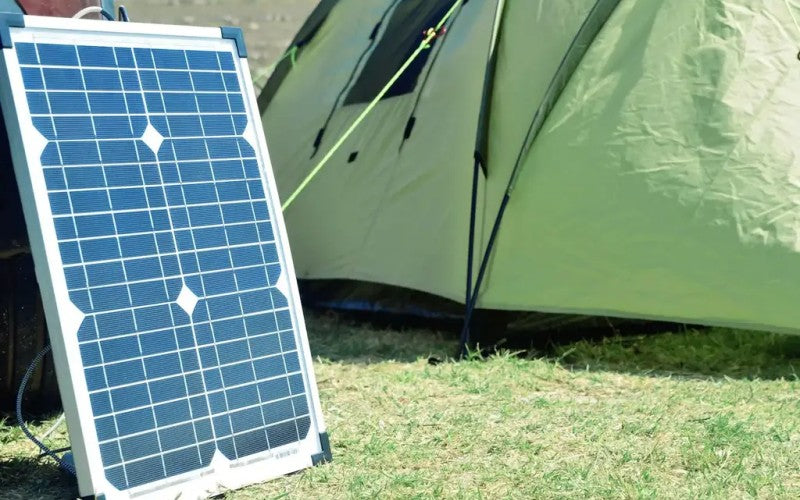
As the world embraces sustainable energy solutions, solar panels have gained immense popularity as an eco-friendly and cost-effective way to harness the power of the sun. Homeowners are increasingly installing solar panels on their rooftops to reduce their reliance on conventional energy sources. But have you ever wondered if these house solar panels can also be used for camping? In this article, we will explore the possibility of utilizing house solar panels for camping adventures, delving into their advantages, limitations, and how to make the most of this green energy source in the great outdoors.
Understanding House Solar Panels
House solar panels, also known as photovoltaic (PV) panels, are designed to convert sunlight into electricity. These panels consist of several solar cells made from semiconductor materials like silicon. When sunlight strikes these cells, it excites electrons, generating direct current (DC) electricity. An inverter then converts this DC electricity into alternating current (AC), which powers your home's electrical appliances.
Can House Solar Panels Be Used for Camping?
The short answer is yes, house solar panels can be used for camping. However, there are some essential factors to consider before setting up your solar-powered campsite.
Portability and Weight
One of the primary challenges in using house solar panels for camping is their lack of portability. Home solar panels are typically large and heavy, designed to be fixed to rooftops. This size and weight make them cumbersome for carrying on camping trips, especially when you need to hike to your campsite. To overcome this, you may need to invest in portable solar panels specifically designed for camping, which are more lightweight and easily foldable.
Power Output
The power output of house solar panels is designed to meet the energy needs of an entire household, making them robust and high-capacity energy generators. While this is ideal for powering m ultiple appliances at home, it might be excessive for camping purposes. A large solar setup could require more space to set up and charge additional equipment, making it impractical for remote camping spots.
Battery Storage
A significant advantage of using solar panels for camping is the ability to store excess energy in batteries, ensuring a continuous power supply even when the sun sets or on cloudy days. House solar panels are typically connected to the grid, and their excess energy is fed back to the utility company. To use house solar panels for camping, you will need to invest in a solar battery storage system to store energy for nighttime use or during low-light conditions.
Flexibility in Setup
House solar panels are fixed installations, while camping requires a flexible setup due to varying terrains and angles of sunlight. Portable solar panels designed for camping come with adjustable stands or mounting options, allowing you to position them optimally to capture the sun's rays efficiently.
Making the Most of House Solar Panels for Camping
If you're determined to use your house solar panels for camping, here are some tips to maximize their potential:
- Invest in Portable Solar Panels: Look for portable solar panels specifically designed for camping. These panels are lightweight, foldable, and easier to transport.
- Optimize Your Campsite: Choose a campsite with ample sunlight exposure throughout the day. Avoid shaded areas and dense tree covers that can obstruct sunlight.
- Use Energy-Efficient Appliances: To minimize energy consumption, opt for energy-efficient camping appliances and LED lights. This will help you make the most of the power generated by your solar panels.
- Consider a Power Station: Instead of relying solely on the grid-tied inverter system, consider investing in a solar power station that includes battery storage. This way, you can store excess energy during the day and use it during the night.
- Practice Energy Conservation: Be mindful of your energy consumption. Turn off appliances when not in use and avoid overcharging devices. Managing energy usage will ensure you have enough power throughout your camping trip.
Conclusion
In conclusion, house solar panels can indeed be used for camping with some adaptations and considerations. While it's feasible to utilize house solar panels for camping, investing in portable solar panels and a solar battery storage system can significantly improve the camping experience and provide a more efficient and sustainable energy solution. Whether you're an avid camper or a casual adventurer, incorporating solar energy into your camping trips allows you to explore the great outdoors while reducing your carbon footprint, thus making a positive impact on the environment. So, before you set off on your next camping adventure, consider the possibilities of harnessing the power of the sun to power your wilderness journey. Happy camping and solar panel adventures!


0 comments